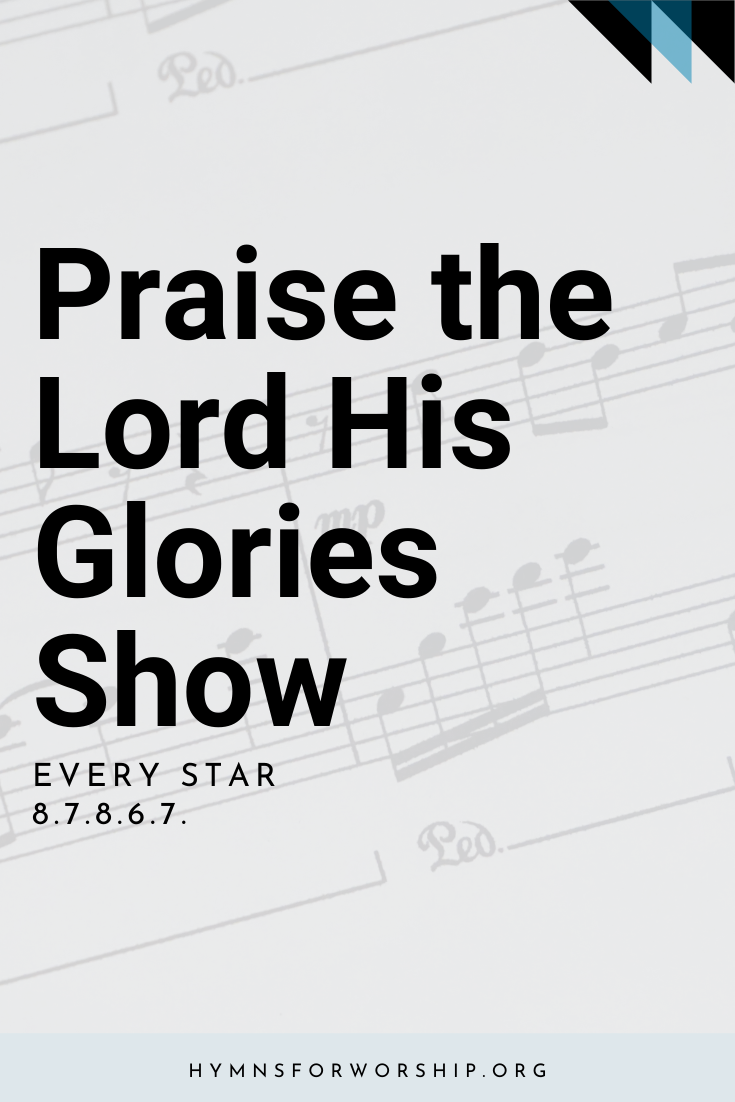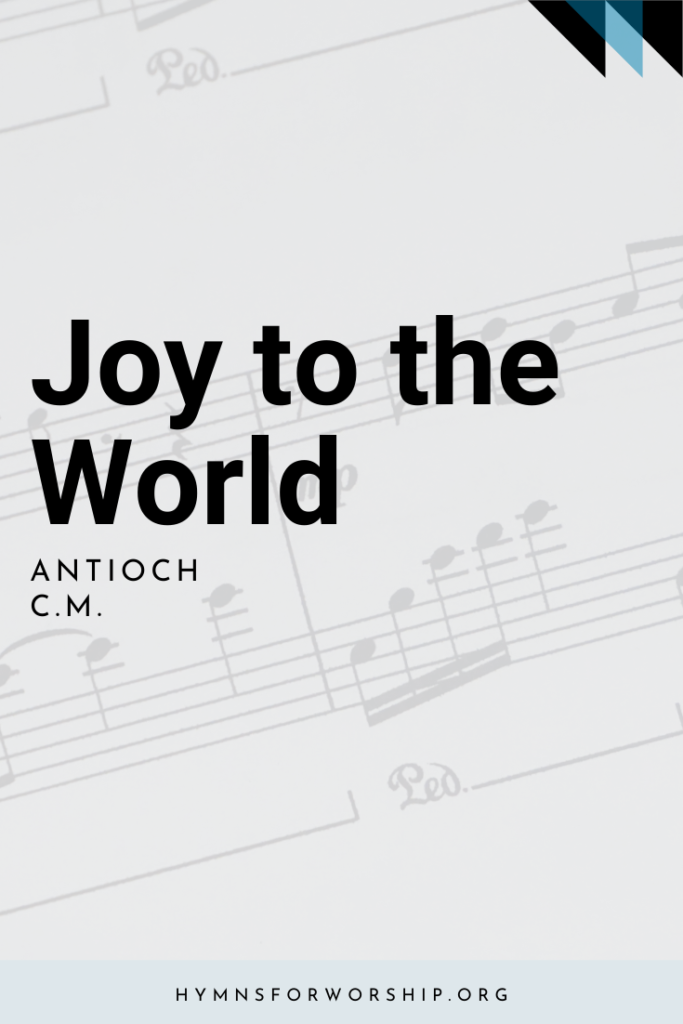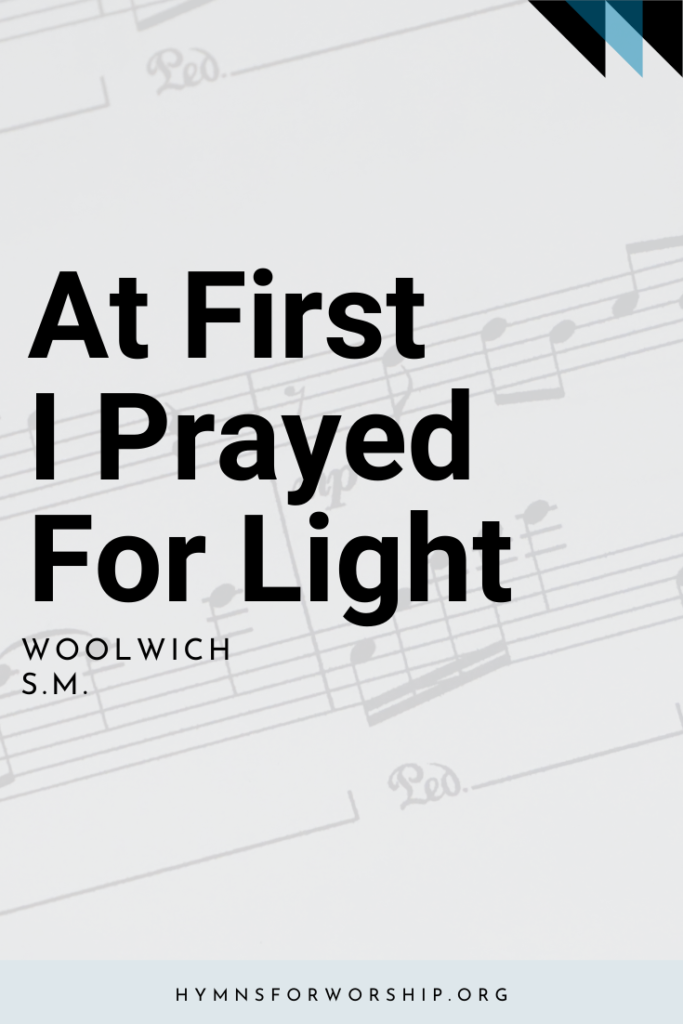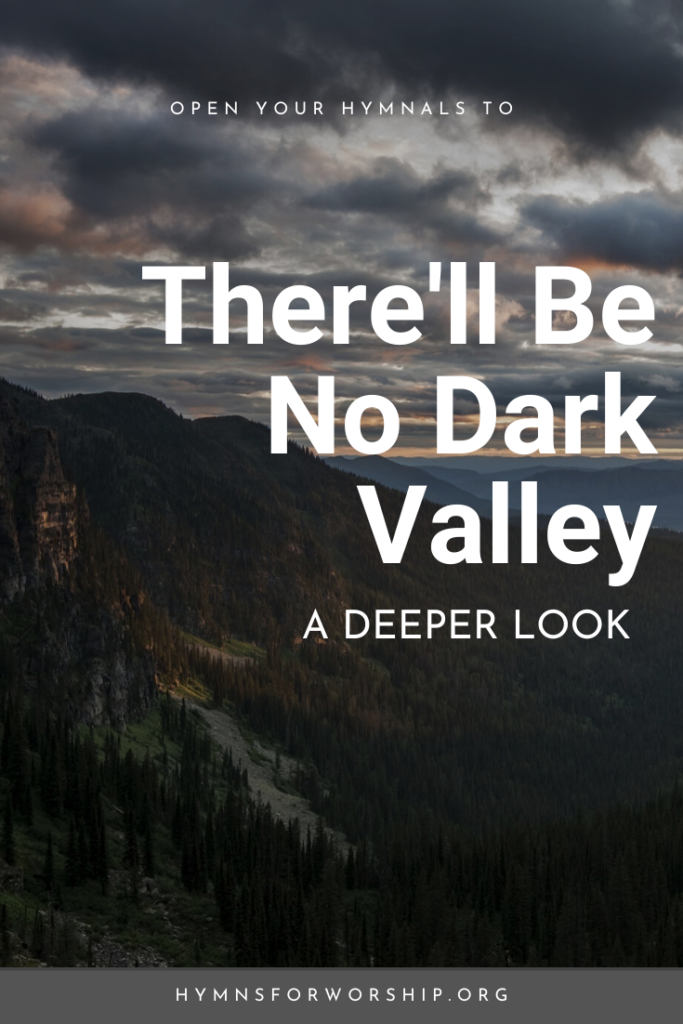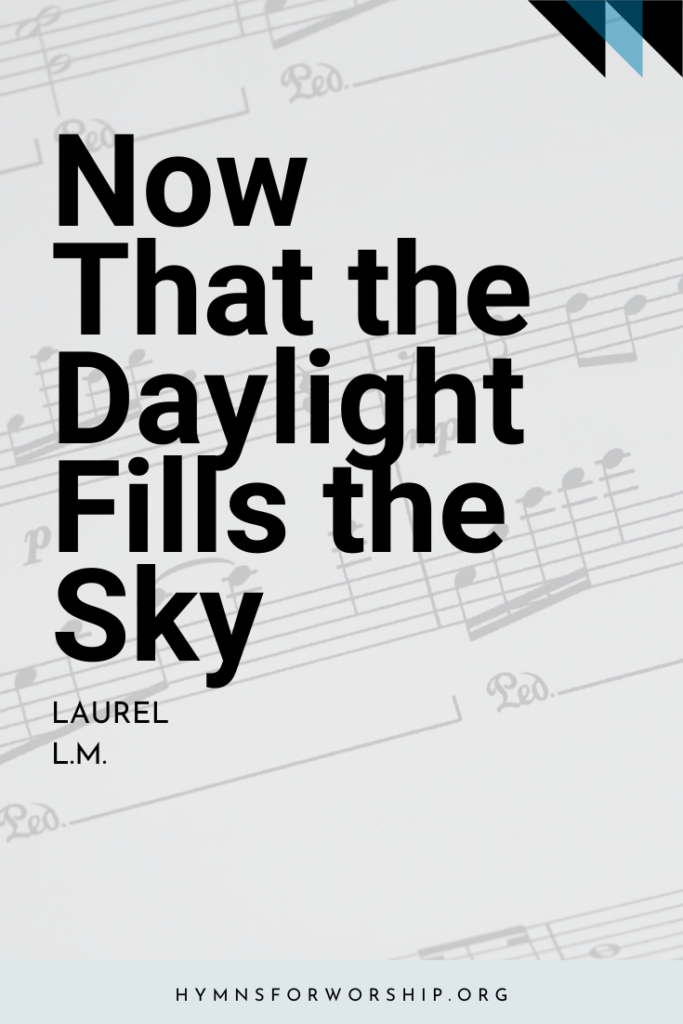WORSHIP >> Adoration & Praise
SDAH 25
Praise the Lord, His glories show, Alleluia!
Saints within His courts below, Alleluia!
Angels ’round His throne above, Alleluia!
All that see and share His love, Alleluia!
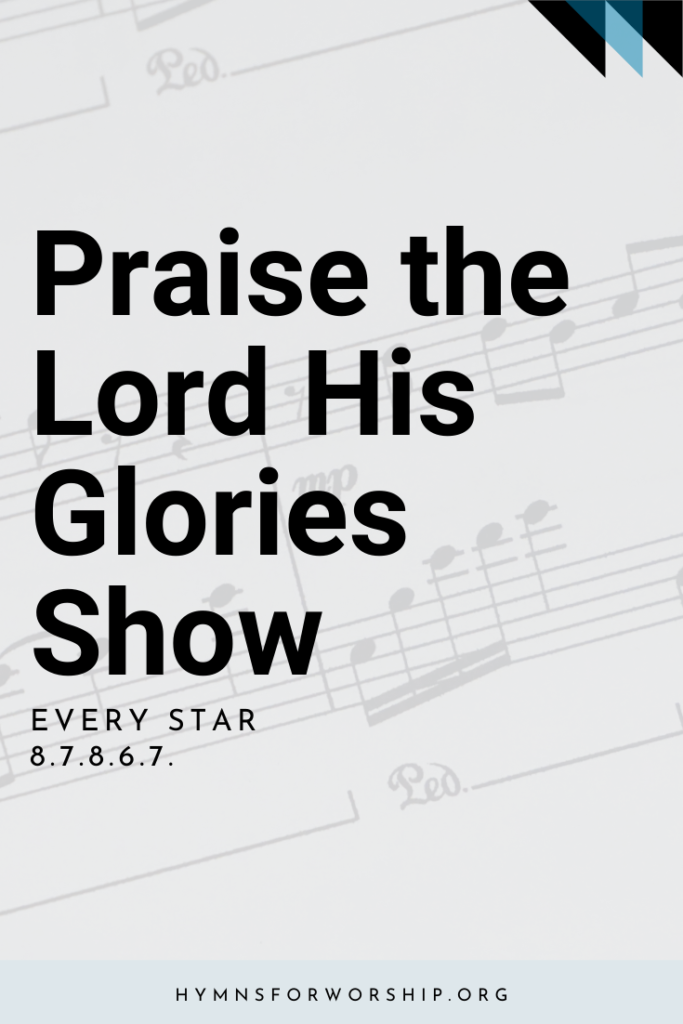

Text
1
Praise the Lord, His glories show, Alleluia!
Saints within His courts below, Alleluia!
Angels ’round His throne above, Alleluia!
All that see and share His love, Alleluia!
2
Earth to heaven and heaven to earth, Alleluia!
Tell His wonders, sing His worth, Alleluia!
Age to age and shore to shore, Alleluia!
Praise Him, praise Him evermore! Alleluia!
3
Praise the Lord, His mercies trace, Alleluia!
Praise His providence and grace, Alleluia!
All that He for man hath done, Alleluia!
All He sends us through His Son. Alleluia!

Hymn Info
Biblical Reference
(a) Ps 150:1, 148:2 (b) Ps 148:4, 7
Author
Henry Francis Lyte (1793-1847)
Year Published
1834
Hymn Tune
LLANFAIR
Metrical Number
7.4.7.4.D.
Composer
Robert Williams (c.1781-1821)
Arranger
John Roberts, 1837 (1822-1877)
Year Composed
1817
Theme
ADORATION & PRAISE
Hymn Score
Piano Accompaniment
Notes
Get to know the hymns a little deeper with the SDA Hymnal Companion. Use our song leader’s notes to engage your congregation in singing with understanding. Even better, involve kids in learning this hymn with our homeschooling materials.
Henry Francis Lyte (1793-1847; see SDAH 4), Anglican vicar of Lower Brixham, Devon, is best known as the author of “Abide With Me,” SDAH 50. In this hymn, written in 1835 and published in his Spirit of the Psalms, he has further shown his poetic gift in a very free paraphrase of Psalm 150. This psalm has six verses, each containing the word praise twice, with the exception of the first verse, which uses this word three times. The stanza omitted is is:
Strings and voices, hands and hearts, Alleluia!
In the concert bear your parts; Alleluia!
All that breath, your Lord adore, Alleluia!
Praise Him, praise Him evermore! Alleluia!
The alleluias (a form of hallelujah, the Hebrew for “Praise ye Jehovah ”) were added as an accommodation to fit the tune. Lyte, whose poems and hymns were mostly on the sad side, has caught the exultant spirit of the psalmist in his last verse of the book of Psalms: “Let everything that hath breath praise the Lord” (Psalms 150:6).
Lyte also wrote SDAH 4, “Praise, My soul, the King of Heaven” SDAH 50, “Abide With Me”; and SDAH 325, “Jesus, I My Cross Have Taken.”
LLANFAIR is dated 1817 in the composer’s manuscript book, where he named it BETHEL… It was first published in Joseph Parry’s Peroriaeth Hyfryd, 1837, and later in the English Hymnal, 1906, where it was matched with Wesley’s “Hail the Day That Sees Him Rise” (see SDAH 176). The form is AABA, one of the easiest to learn and remember, as the score of the melody is repeated in scores 2 and 4. Llan means church and fair refers to Mary, thus “The Church of St. May.” In McCutchan’s Hymn Tune Names, he tells how the first four letters “Llan” constitute the prefix of some 450 place names in Wales. Llanfair is the abbreviation of a village in Montgomery County whose name is the word in any language — 58 letters: “Llanfairpwllgwyngyllgogerychwyrndrobwllllantysiliogogogoch”! It means “Church of St. Mary in a hallow of white hazel near the rapid whirlpool of the Church of St. Tysillio by the red cave.” The words in italic are an exact translation of the long string of Welsh words. The village is on the isle of Anglesey, just across the Menai Strait from the town of Bangor.
Not much is known about the composer, Robert Williams (c. 1781-1821), except that he was a blind basketmaker who lived on the isle of Anglesey in the northern part of Wales. He was evidently a most gifted natural musician, a good singer who could write down a tune after hearing it only once.The arrangement was for ra Welsh hymnbook of 1837 by John Roberts, who was born December 22, 1822, near the Welsh City of Aberystwyth. A young prodigy, Robert directed a choir at 14 and was a schoolmaster at age 16! After serving as assistant editor of Amserau, the most influential Welsh paper of that time, he was ordained a Calvinistic Methodist minister in 1859. He worked as a pastor in northern Wales, and founded the famous Welsh singing festival “Cymanfau Ganu,” which is still held. He published an important hymnal, edited a monthly music magazine and a publication for children, and prepared a Welsh translation of a collection of hymns by D. L. Moody and Ira D. Sankey in 1874. He died May 6, 1877.

